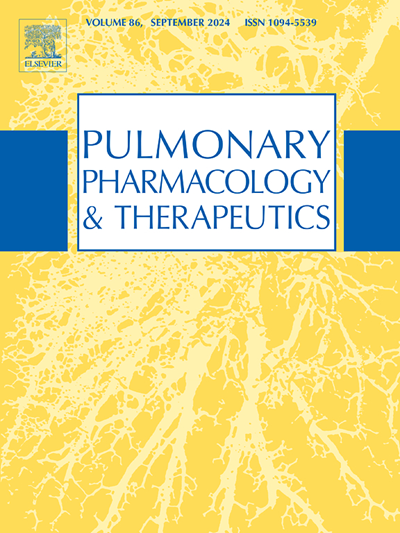IL-10RA promotes lung cancer cell proliferation by increasing fatty acid oxidation via STAT3 signaling pathway
IF 2.8
3区 医学
Q2 PHARMACOLOGY & PHARMACY
引用次数: 0
Abstract
Metabolic reprogramming in tumor cells plays a crucial role in promoting cell proliferation and metastasis, and is currently recognized as a significant marker of tumor progression. Interleukin-10 receptor subunit alpha (IL-10RA), a member of the type II cytokine receptor family, is predominantly expressed on macrophages and T cells and plays a crucial role in regulating immune cell metabolism and immune response. However, its role in the energy metabolic pathways of tumor cells remains unclear. In this study, we found increased expression of IL-10RA in human non-small cell lung cancer (NSCLC), and a correlation between increased IL-10RA expression and tumor stage, tumor size, and short overall survival of patients with NSCLC. IL-10RA overexpression significantly promoted the proliferation of NSCLC cell lines and enhanced glycolysis and fatty acid oxidation (FAO), thereby boosting energy production. Correspondingly, the downregulation of IL-10RA inhibited proliferation, glycolysis, and FAO in NSCLC cell lines. Bioinformatic analyses indicated that IL-10RA upregulates the signal transducer and activator of transcription 3 (STAT3) signaling pathway. STAT3 inhibitor effectively blocked the increase in FAO levels and cell proliferation induced by IL-10RA overexpression. These findings suggest that IL-10RA accelerates NSCLC cell proliferation by increasing FAO levels via the STAT3 pathway, highlighting IL-10RA as a potential therapeutic target for NSCLC.

IL-10RA通过STAT3信号通路增加脂肪酸氧化,促进肺癌细胞增殖。
肿瘤细胞的代谢重编程在促进细胞增殖和转移中起着至关重要的作用,目前被认为是肿瘤进展的重要标志。白细胞介素-10受体亚单位α (IL-10RA)是II型细胞因子受体家族的成员,主要表达于巨噬细胞和T细胞,在调节免疫细胞代谢和免疫应答中起重要作用。然而,其在肿瘤细胞能量代谢途径中的作用尚不清楚。在本研究中,我们发现IL-10RA在人非小细胞肺癌(NSCLC)中表达升高,且IL-10RA表达升高与肿瘤分期、肿瘤大小、NSCLC患者总生存期短存在相关性。IL-10RA过表达可显著促进NSCLC细胞系的增殖,增强糖酵解和脂肪酸氧化(FAO),从而促进能量产生。相应地,IL-10RA的下调抑制了NSCLC细胞株的增殖、糖酵解和FAO。生物信息学分析表明,IL-10RA上调了STAT3 (signal transducer and activator of transcription 3)信号通路。STAT3抑制剂能有效阻断IL-10RA过表达诱导的FAO水平升高和细胞增殖。这些发现表明,IL-10RA通过STAT3通路增加FAO水平,从而加速非小细胞肺癌细胞增殖,强调IL-10RA是非小细胞肺癌的潜在治疗靶点。
本文章由计算机程序翻译,如有差异,请以英文原文为准。
求助全文
约1分钟内获得全文
求助全文
来源期刊
CiteScore
6.20
自引率
0.00%
发文量
41
审稿时长
42 days
期刊介绍:
Pulmonary Pharmacology and Therapeutics (formerly Pulmonary Pharmacology) is concerned with lung pharmacology from molecular to clinical aspects. The subject matter encompasses the major diseases of the lung including asthma, cystic fibrosis, pulmonary circulation, ARDS, carcinoma, bronchitis, emphysema and drug delivery. Laboratory and clinical research on man and animals will be considered including studies related to chemotherapy of cancer, tuberculosis and infection. In addition to original research papers the journal will include review articles and book reviews.
Research Areas Include:
• All major diseases of the lung
• Physiology
• Pathology
• Drug delivery
• Metabolism
• Pulmonary Toxicology.

 求助内容:
求助内容: 应助结果提醒方式:
应助结果提醒方式:


